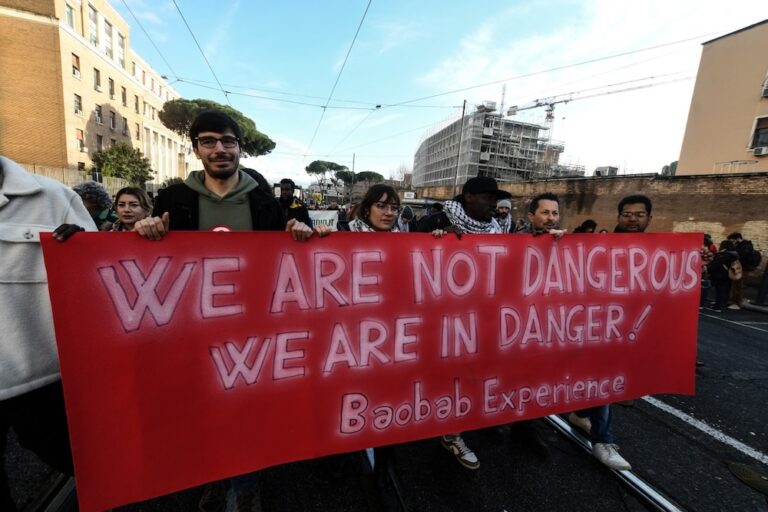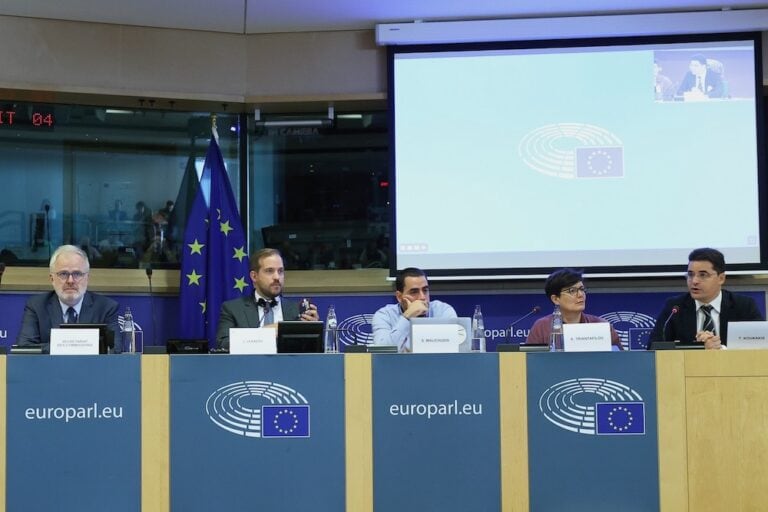(RSF/IFEX) – In a letter to Italian Justice Minister Oliviero Diliberto, RSF expressed its concern following the conclusion of the trial of the presumed murderers of Ilaria Alpi, an Italian journalist who was assassinated in Somalia in 1994, along with her cameraman, Miran Hrovatin. On the occasion of the sixth anniversary of this murder, RSF […]
(RSF/IFEX) – In a letter to Italian Justice Minister Oliviero Diliberto, RSF expressed its concern following the conclusion of the trial of the presumed murderers of Ilaria Alpi, an Italian journalist who was assassinated in Somalia in 1994, along with her cameraman, Miran Hrovatin. On the occasion of the sixth anniversary of this murder, RSF asked that “the justice system continue its work so that the people behind this double homicide are found and punished”. Robert Ménard, the organisation’s secretary-general, stated: “Six years after these events, we have a right to know the truth surrounding the death of Ilaria Alpi and Miran Hrovatin, who were assassinated for having sought to exercise their profession freely.”
On 20 July 1999, Hashi Omar Hassan, a Somalian accused of having participated in the murder of Italian journalist Alpi and her Czech cameraman Hrovatin in Mogadishu, was acquitted by a Rome court. Hashi Omar Hassan was arrested in January 1998, shortly after his arrival in Italy, where he was expected to testify with other Somalians before a commission of inquiry on alleged violent acts perpetrated by Italian soldiers in 1994 during Operation “Restore Hope”. Hashi Omar Hassan always pleaded his innocence, stating that he was more than 300 kilometres from Mogadishu at the time of the two journalists’ asassination.
According to the trial minutes, which were made public on 29 October 1999, “Hashi Omar Hassan was the victim of a plot, organised in order to bring an end to this double murder case, which weighs like a ball and chain in relations between Italy and Somalia”. The magistrates blame Somalian clan leader Ali Mahdi in this affair. At the time of the murders, he controlled the northern neighbourhoods of Mogadishu, where Alpi and Hrovatin were killed. They underline that Hashi Omar Hassan belonged to the same clan as Ali Mahdi. “It seems logical”, concluded the judges, “that he was offered by Ali Mahdi as a scapegoat to Italian authorities”. The court also examined possible motives for this double crime, and did not rule out that the two journalists “were killed because they had made bothersome discoveries during their stay in Somalia”. However, the trial minutes state that: “despite the numerous hypotheses which were brought forward during the different court sittings, no definitive conclusion could be reached at the end of the trial”.
In mid-November 1999, Alpi’s family contacted the High Council of the magistrature, asking that the justice system continue its work with the case. The trial of Hashi Omar Hassan exposed the inquiry’s numerous gaps and grey areas. The Alpi family’s lawyer, named Calvi, notably drew the judge’s attention to the disappearance of the journalist’s notes, camera and videocassettes, which she had recorded while in Somalia. He also underlined the contradictions in the statements of the Italian soldiers who were responsible for the sector in which the two journalists were found dead. The parliamentary commission of inquiry examining the Italian mission in Somalia also noted the many attempts by military and diplomatic authorities to minimise or suppress certain aspects of the case during the inquiry.
Alpi and Hrovatin, RAI special envoys in Somalia, were killed on 20 March 1994 by a group of seven Somalian militiamen, while riding in a car in Mogadishu. A book titled “The execution”, published in January 1999 and written by Alpi’s parents, Giorgio and Luciana, Member of Parliament Mariangela Gritta Grainer, a member of the parliamentary commission of inquiry examining the Italian mission in Somalia, and Maurizio Torrealta, an RAI journalist, theorises that the two journalists were allegedly killed because they had inquired about an international arms and toxic waste traffic ring which implicated high-level political, military and economic spheres in both countries. The Italian Secret Services (SISMI) were notably implicated in this ring.


